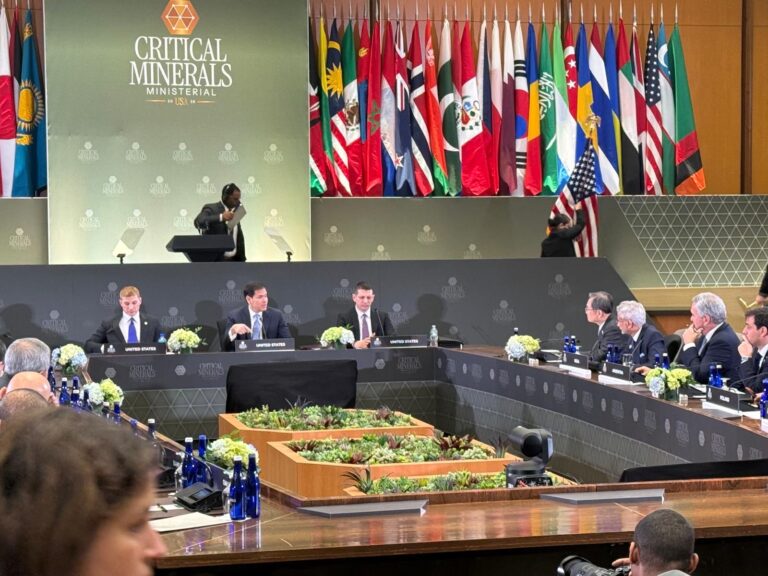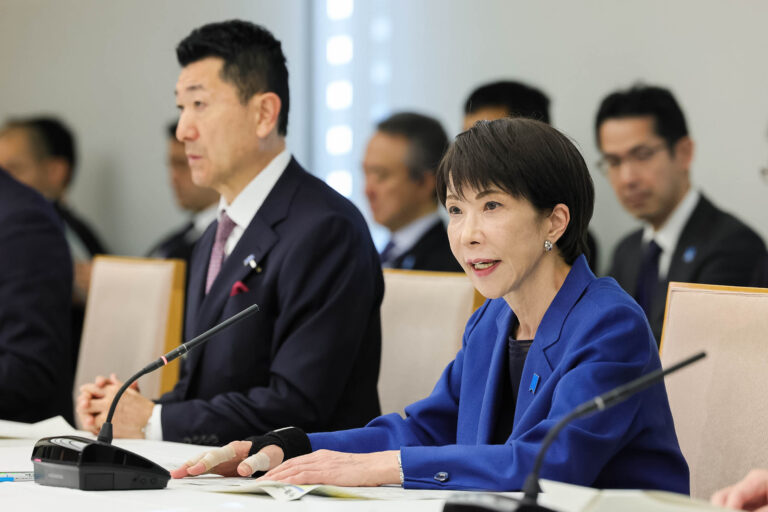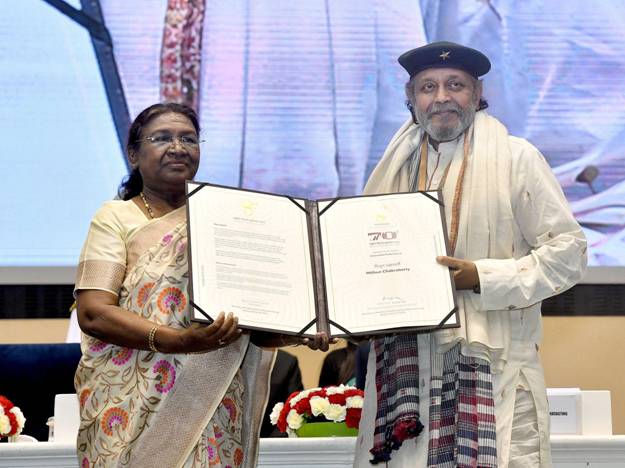
Filmstar Mithun Chakraborty receives Dadasaheb Phalke Lifetime Achievement Award from President Droupadi Murmu today.
New Delhi: President of India Droupadi Murmu today conferred the Dadasaheb Phalke Lifetime Achievement Award for the year 2022 on Mithun Chakraborty. She also presented the 70th National Film Awards in various categories.
President Murmu, while congratulating Mithun Chakraborty for receiving the Dadasaheb Phalke Lifetime Achievement Award, said that in his artistic journey of almost five decades, Mithun not only portrayed serious characters on screen but also portrayed with success many ordinary stories with his unique energy.
“Never allow your dreams to sleep, even if you are asleep,” Mithun told young awardees who received the 70th National Film Award in various categories in the national capital.
Addressing the gathering, he shared the experiences of his struggle in the film industry. He recalled the discrimination he faced due to his dusky complexion and shared his dancing success mantra with the awardees and audience present in the auditorium. His message to the aspiring young talent artists was to identify their talent while chasing their dreams.
Mithun is an iconic Indian actor, producer, and politician, recognized for his versatile roles and distinctive dancing style. Born Gourang Chakraborty on June 16, 1950, in Kolkata, West Bengal, he earned the National Film Award for Best Actor in his very first film, “Mrigayaa” (1976). Mithun gained significant popularity in the 1980s with his role in “Disco Dancer” (1982), a film that became a major success both in India and internationally, establishing him as a dancing sensation.
Later, he won two more National Film Awards for his roles in Tahader Katha (1992) and Swami Vivekananda (1998). Over his extensive career, Mithun has acted in more than 350 films across various Indian languages, including Hindi, Bengali, Odia, Bhojpuri, and Telugu. He is known for his diverse performances, ranging from action to drama and comedy, and has won several awards, including three National Film Awards for Best Actor.
The winners of the 70th National Film Awards for the year 2022 were announced by the jury on August 16, 2024.
The award for Best Feature Film was conferred upon Aattam (The Play) in Malayalam, produced by Joy Movie Productions LLP and directed by Anand Ekarshi. The award included the Swarna Kamal and a cash prize of Rs. 3,00,000.
The award for Best Popular Film Providing Wholesome Entertainment was awarded to Kantara in Kannada, produced by Hombale Films LLP and directed by Rishab Shetty. The award included the Swarna Kamal and a cash prize of Rs. 3,00,000.
The award for Best Feature Film Promoting National, Social, and Environmental Values was given to Kutch Express in Gujarati, produced by Soul Sutra LLP and directed by Viral Shah. The award included the Rajat Kamal and a cash prize of Rs. 2,00,000.
The award for Best Film in AVGC (Animation, Visual Effects, Gaming & Comic) was given to Brahmastra – Part 1: Shiva in Hindi, produced by Dharma Productions, Prime Focus, and Starlight Pictures, and directed by Ayan Mukerji. The award included the Swarna Kamal and a cash prize of Rs. 3,00,000.
The award for Best Actor in a Leading Role was conferred upon Rishab Shetty for his performance in Kantara (Kannada).
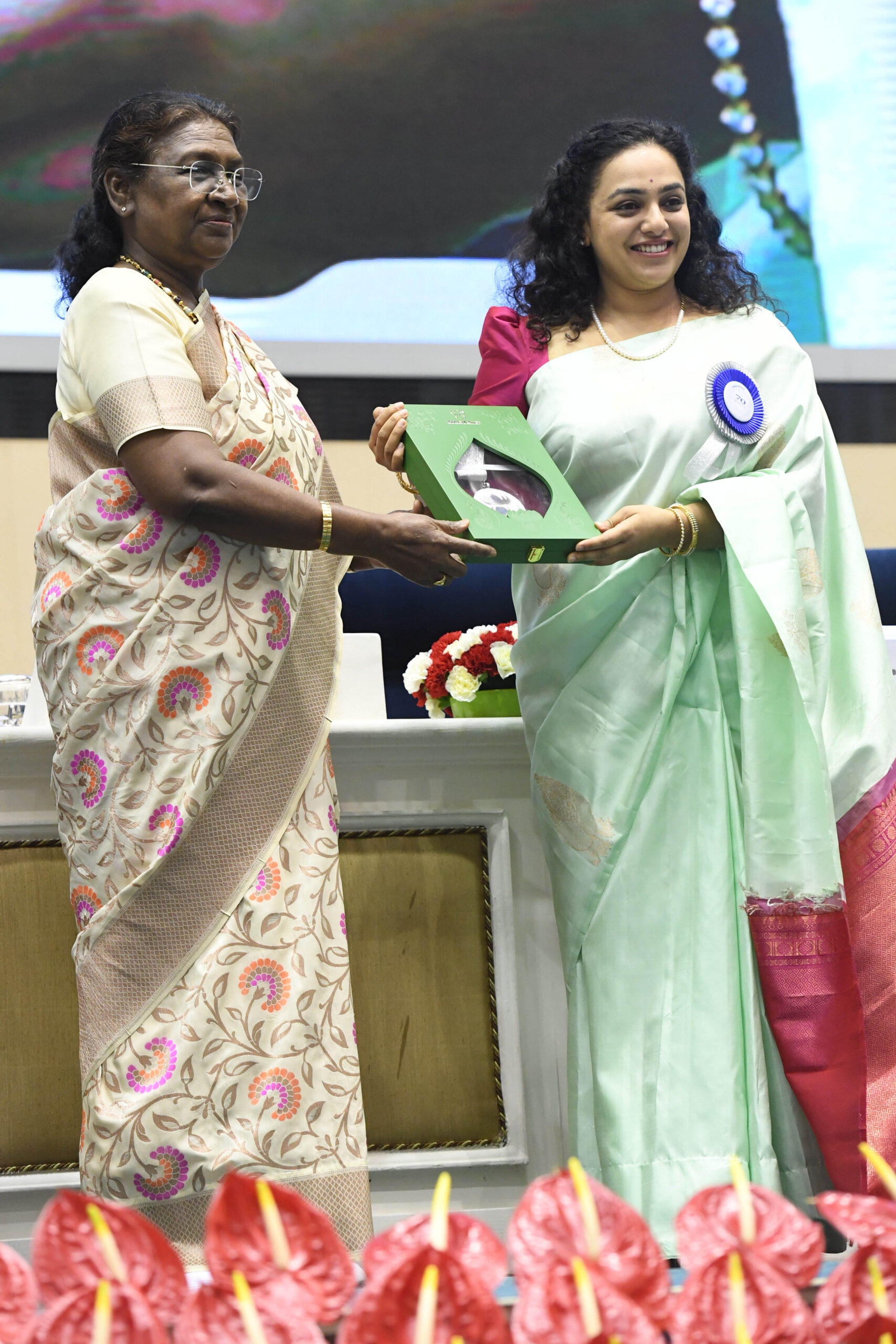
The award for Best Actress in a Leading Role was shared between Nithya Menen for her performance in Thiruchitrambalam (Tamil) and Manasi Parekh for her performance in Kutch Express (Gujarati).
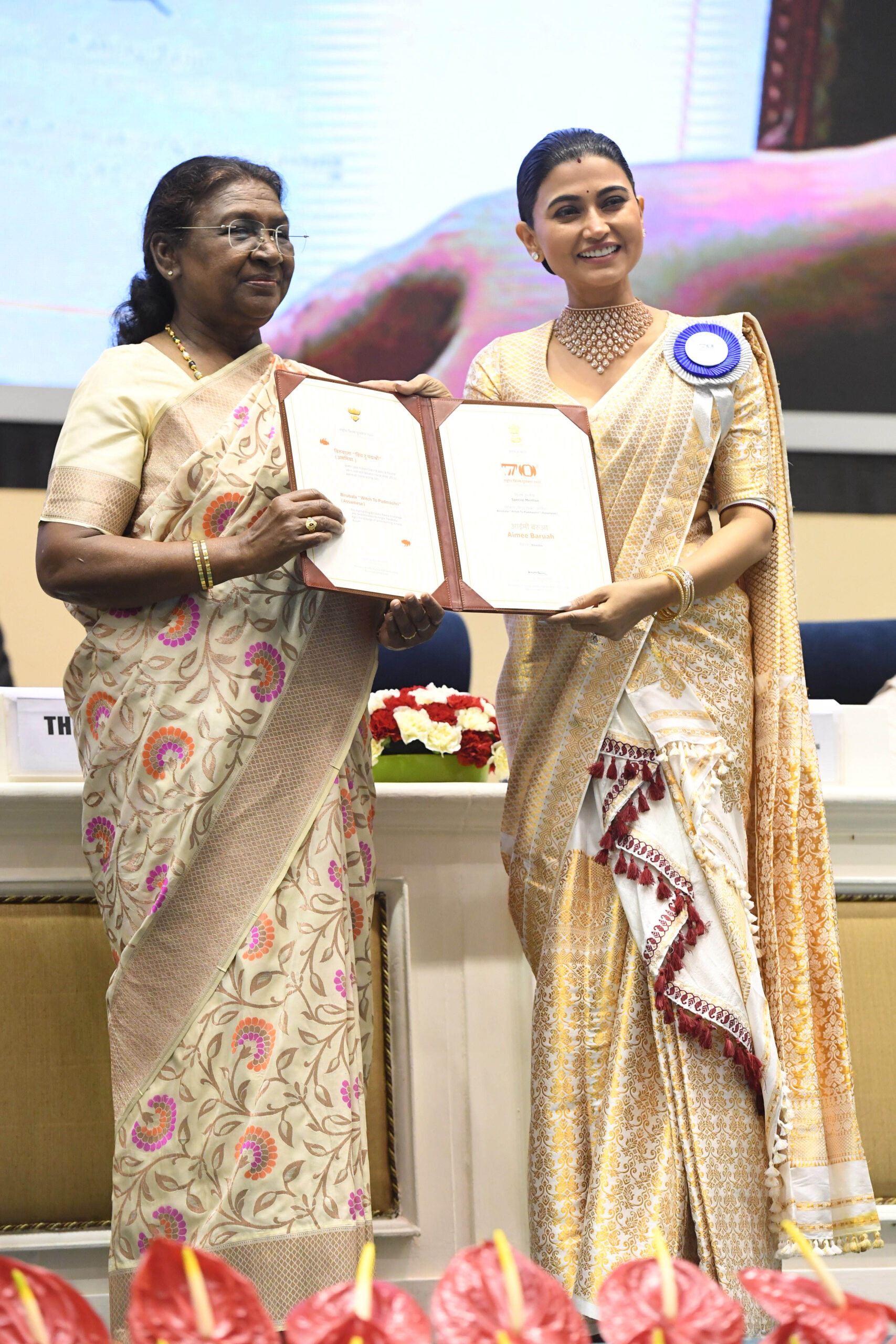
The award for Best Actor in a Supporting Role was given to Pavan Raj Mallhotra for his performance in Fouja (Haryanvi).
The award for Best Actress in a Supporting Role was awarded to Neena Gupta for her performance in Uunchai (Zenith) (Hindi).
The award for Best Child Artist was given to Sreepath for his performance in Malikappuram (Malayalam).
The award for Best Male Playback Singer has been awarded to Arijit Singh for the song “Kesariya” in Brahmastra – Part 1: Shiva (Hindi). The award included the Rajat Kamal and a cash prize of Rs. 2,00,000.
The award for Best Female Playback Singer has been given to Bombay Jayashri for the song “Chaayum Veyil” in Saudi Vellakka CC.225/2009 (Malayalam). The award includes the Rajat Kamal and a cash prize of Rs. 2,00,000.
The award for Best Direction was awarded to Uunchai (Zenith) in Hindi, directed by Sooraj R. Barjatya. The award included the Swarna Kamal and a cash prize of Rs. 3,00,000.
The award for Best Non-Feature Film was conferred on Ayena (Mirror) in Hindi/Urdu, produced by The Films and directed by Siddhant Sarin. The winner received the Swarna Kamal and a cash prize of Rs. 3,00,000 each.
The award for Best Debut Film of a Director was given to Madhyantara (Intermission) in Kannada, directed by Basti Dinesh Shenoy. The winner was honoured with the Swarna Kamal and a cash prize of Rs. 3,00,000.
The award for Best Biographical / Historical Reconstruction / Compilation Film has been awarded to Aanakhi Ek Mohenjo Daro (Yet Another Mohenjo Daro) in Marathi, produced by de Goan Studio and Ashok Rane Productions and directed by Ashok Rane.
The award for Best Arts / Culture Film was jointly awarded to:
(a) Ranga Vibhoga (Temple Dance Tradition) in Kannada, produced and directed by Suneel Narasimhachar Puranik.
(b) Varsa (Legacy) in Marathi, produced and directed by Sachin Balasaheb Suryawanshi.
The award for Best Documentary was given to Murmurs of the Jungle in Marathi, produced and directed by Sohil Vaidya.
The award for Best Non-Feature Film Promoting Social and Environmental Values was conferred upon On the Brink Season 2 – Gharial in English, produced by The Gaia People and directed by Akanksha Sood Singh.
The award for Best Animation Film was given to A Coconut Tree (Silent), produced by JB Productions and directed and animated by Joshy Benedict.
The award for Best Short Film (Up to 30 Minutes) was awarded to Xunyota (Void) in Assamese, produced by HM Production and directed by Nabapan Deka.
The award for Best Direction was conferred upon From the Shadows in Bengali/Hindi/English, directed by Miriam Chandy Menacherry. The award includes the Swarna Kamal and a cash prize of Rs. 3,00,000.
The award for Best Script was given to Mono No Aware in Hindi and English, written by Koushik Sarkar.



